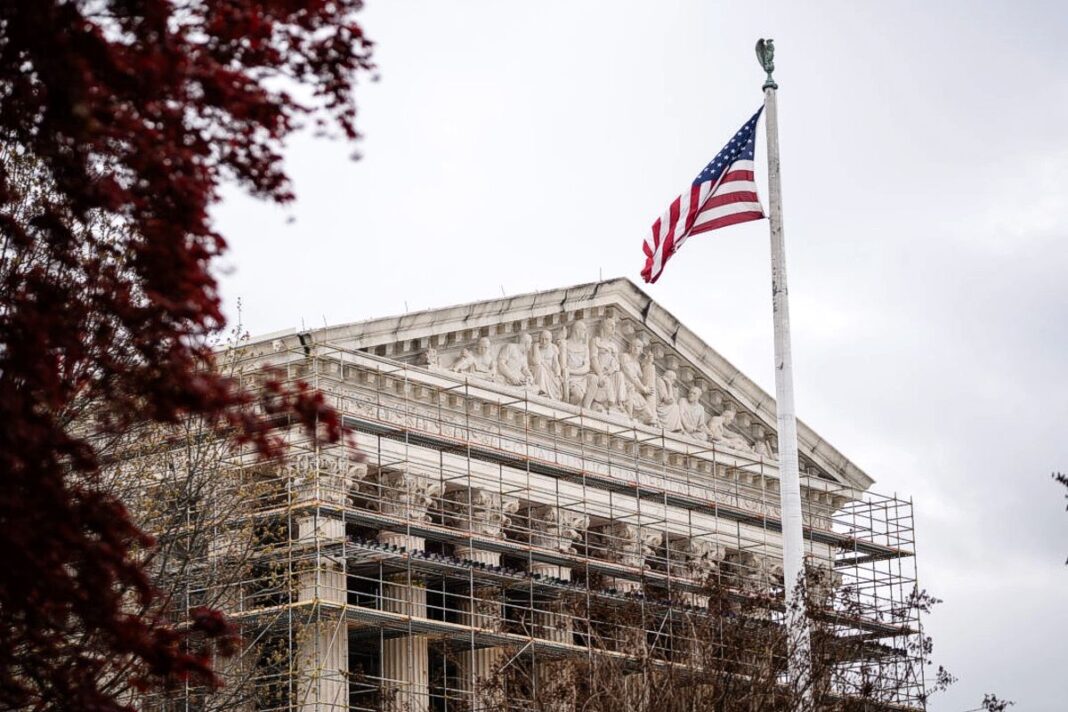The ruling is in place as the case against the ban continues.
The Supreme Court on May 6 granted a stay that allows the Trump administration to ban troops who identify as transgender, as litigation challenging the ban plays out.
A majority of justices agreed to enter a stay of a preliminary injunction that was entered by a U.S. district judge in March against the policy, pending the disposition of an appeal.
Justices Sonia Sotomayor, Elena Kagan, and Ketanji Brown Jackson dissented, the court said.
President Donald Trump, in a January executive order, said that people who express a gender identity that diverges from their sex “cannot satisfy the rigorous standards necessary for military service” and directed military officials to update rules to that effect.
In a memorandum in February, Defense Department officials said that personnel “with gender dysphoria or who have a current diagnosis or history of, or exhibit symptoms consistent with, gender dysphoria” would be discharged from the military unless they were given an exemption.
Some affected personnel sued, alleging the ban violates their constitutional rights.
U.S. District Judge Benjamin Settle said in the order entering the injunction that officials had presented no evidence supporting the prohibition on people who identify as transgender serving in the military.
“The government’s unrelenting reliance on deference to military judgment is unjustified in the absence of any evidence supporting ’the military’s’ new judgment reflected in the Military Ban—in its equally considered and unquestionable judgment, that very same military had only the week before permitted active-duty plaintiffs (and some thousands of others) to serve openly,” Settle wrote at the time.
In April, a U.S. Court of Appeals for the Ninth Circuit panel denied the Trump administration’s request for a stay, concluding the government had not proven it would suffer irreparable harm unless the injunction were blocked.
U.S. Solicitor General D. John Sauer then went to the Supreme Court, asking it to intervene.
“The district court issued a universal injunction usurping the Executive Branch’s authority to determine who may serve in the Nation’s armed forces—despite this Court previously staying injunctions against a materially indistinguishable policy,” Sauer wrote.
He argued that the appeals court action “cannot be reconciled” with how justices previously stayed injunctions against a previous policy, which was offered during Trump’s first term.








